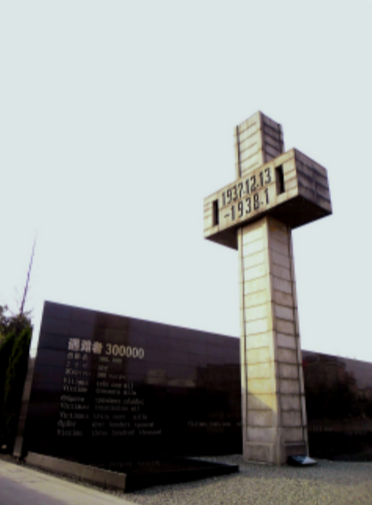The Pakistani Debacle: A New Solution for America’s Counterterrorism Policy
- Christopher Rahimian-Smith
- Mar 3, 2024
- 4 min read
Updated: Mar 31, 2024
Christopher Rahimian-Smith

Taliban soldiers stand in front of protesters during the anti-Pakistan protest in Kabul, Afghanistan, September 7, 2021.
On Thursday, February 8th, Pakistan’s general election opened for voters to select a new prime minister. Imran Khan loyalists have sought to restore him to the national assembly even though he has been jailed since May 2023. Inversely, Nawaz Sharif, who leads the Pakistan League-N party is the favorite, claiming 71 of 265 parliamentary seats. Regardless of the election results, the United States has emphasized concern for any accusation of election tampering but will continue collaborating efforts with Islamabad no matter the ruling coalition.
Since the 1947 partition of the British Raj, Pakistan has been ruled by a hybrid system of military and executive coexistence. This has created a rift between ruling coalitions and military interests, further disrupting Pakistan’s turbulent economy and fostering a culture of Islamic militants. The Tehreek-i-Taliban Pakistan (TTP) is the greatest threat to the internal security of Pakistan. The group is largely composed of ethnic Pashtuns and is known also to be linked with Al-Qaeda. In 2021, their leader, Noor Wali Mehsud, gathered 3,000-6,000 cadres to defeat the Pakistani government and establish sharia law in the northwestern province of Khyber Pakhtunkhwa.
The TTP’s growing threat is on the back burner of Pakistan’s concerns; however, Pakistan’s IMF debt packages and the lack of a cohesive government further strengthen support and influence for a Taliban-led government. The United States should specifically address the growing Taliban threat from Afghanistan and its cells inside Pakistan. A suppressed TTP does not only incite further violence against the government but further reinforces ethnic and religious tensions within Pakistan and its bordering states.
The United States should pay close attention to the lack of political authority inside Pakistan and its implications. Senior Pakistani bureaucrat, Liaqat Ali Chattha, admitted to margin fraud in the prime minister elections. This presents a dire delay in Pakistan’s long-needed coalition change and introduces the lack of a legitimate claim to power for the new coalition. Subsequently, an illegitimate government and lack of ruling authority is all the more motive for the TTP to spread pro-caliphate and pro-sharia rhetoric.
Historically, the Pakistani intelligence services provided funding and sanctuary for Afghan and Pakistani Taliban personnel. Pashtun nationalism in the advent of the Taliban takeover in Afghanistan has reinvigorated TPP cells within Pakistan and further exposed the population to continued attacks. The TTP took a surprising stance in January of 2024 and pledged not to attack election rallies, saving their attacks for military and security personnel.
Pakistan’s potential ruling coalition could include the Jamaat-e-Islami (JI). This party advocates Islam as a universal and dynamic way of life and supports the principles of political Islam. The United States should rectify a strategy of smart power towards the TTP through the Jamaat-e-Islami. Of the multiple parties in Pakistan, the JI are known to be close allies with Pakistan’s military.
The United States and Jamaat-e-Islami should focus on garnering those associated with the TTP who generally fall into the category of “neo-Taliban.” These are members who are generally in favor of law and order solutions, and those who are pragmatic in working with the government. Although quite lofty, severe economic and military pressure by the Pakistani military would further incite violence from inside TTP cells and potentially become at odds with the Taliban-led government in Afghanistan. Thus, the United States and JI should focus on creating a diplomatic system to integrate the TTP into Pakistan’s bureaucracy.
Pakistan and the Jamaat-e-Islami party should make it firm that any attempt to terrorize civilians or the government, will be met with force from Pakistan’s military. The JI has been in support of Pakistan’s National Action Plan to combat internal terrorism. Attempting to integrate the TTP into governmental activity will certainly be met with terror opposition. The Pakistani government must emphasize the ability of the TTP to be on the ballot, but the use of force should be strictly prohibited. By refraining from terror attacks, the Pakistani government should promote legitimate businesses and economic cooperation with the TTP.
Pakistan’s current election situation indicates internal destabilization that could result in broader regional instability. Although the threat of the TTP sits way below Pakistan’s IMF loan repayment plan, the lack of a ruling authority could cause internal strife. This would give the TTP all the more reason to harm civilians in the name of terror and potentially increase attacks against the central authority of Pakistan. Not to mention, the Taliban’s takeover of Afghanistan inspires hard lining, Deobandi-ideological Taliban members in Pakistan. However, instead of solely relying on military hard power to pressure the TTP, the United States with the help of the Pakistani government should take collective measures to integrate them into the government, while upholding a secondary military power measure if the TTP decides to retaliate.
Works Cited
Ahmed, Munir. “Pakistani Taliban Pledge Not to Attack Election Rallies Ahead of Feb. 8 Vote.” AP News, AP News, 25 Jan. 2024, apnews.com/article/pakistan-taliban-deny-threats-elections-db8ca74319bf5639c32c4ae7372e6a09.
Kronstadt, K Alan. “Pakistan - Terrorist, Insurgent and Extremist Groups.” SATP, 1 Dec. 2023, www.satp.org/terrorist-groups/pakistan.
Parkin, Benjamin, and Farhad Bokhari. Will Pakistan’s Military Regret Turning on Imran Khan?, 7 Feb. 2024, www.ft.com/content/d6cef2da-dd43-4e33-99d6-c882abe68451.
Parkin, Benjamin, and Farhan Bokhari . “Imran Khan Allies Accuse Pakistan Officials of Vote Rigging.” Financial Times, 10 Feb. 2024, www.ft.com/content/be2925f4-8cb6-41fc-ae07-b00a6493014d.




Comments